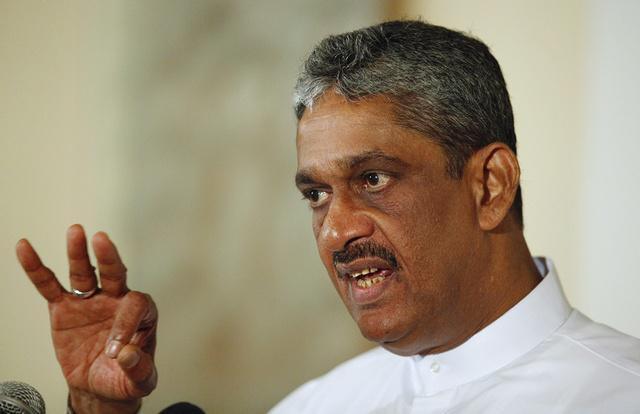
Amidst the chaos in Colombo, Sri Lankan war criminal and army commander Sarath Fonseka has claimed he is ready to become President if supported by the majority and may be supported by the formerly Rajapaksa-aligned Sri Lanka Podujana Peramuna (SLPP).
When asked if he had told the leader of his party, the Samagi Jana Balawegaya (SJB), of his intentions, Fonseka retorted that he doesn’t “have to tell the leader about my personal discussions”. This comes as Fonseka has told the military to disregard the acting Sri Lankan President’s orders and to turn their weapon on “corrupt politicians”.
He further told the media:
“I have been asked to contest for the presidency by some sections of MPs, including a group from SLPP. Therefore, I will accept the post if I am elected”.
Fonseka is one of the architects of the Mullivaikkal genocide. He served as Sri Lanka’s army commander during the final years of the wars, from 2005 to 2009, which oversaw a litany of war crimes, including the indiscriminate shelling of hospitals, mass executions and sexual violence. During the final months, UN data suggests that over 70,000 Tamils were slaughtered whilst local census records indicate that at least 146,679 people are unaccounted for and are presumed to have been killed.
In 2010 he stood against Mahinda Rajapaksa during the Presidential elections but was defeated. He was then imprisoned by his political rival under charges of corruption relating to military procurements and treason. He was given a 30-month jail sentence.
In 2011 he admitted that during the armed conflict, LTTE cadres who had surrendered were summarily executed under the orders of Gotabaya Rajapaksa, then acting defense secretary. Fonseka would later recant the statement and claim he was misquoted.
Fonseka has since lashed out at moves towards accountability, accusing the UN High Commissioner for Human Rights Michelle Bachelet of harbouring LTTE sympathies.
